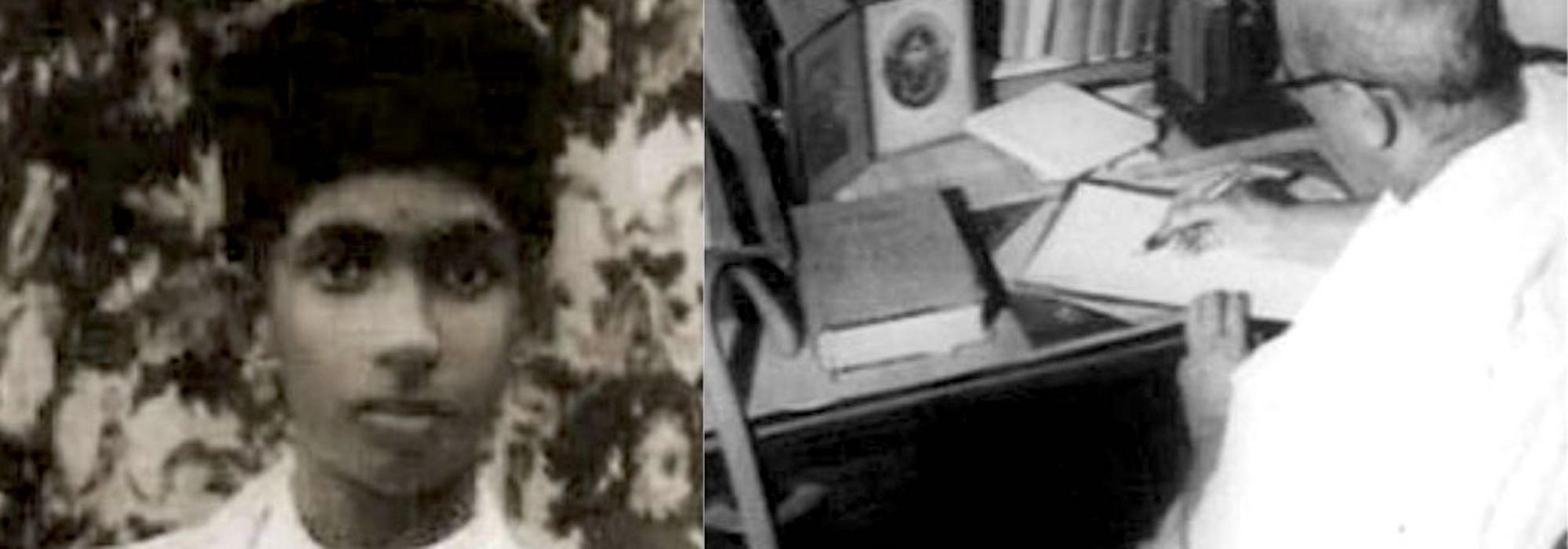DVG’s well-founded, wise, and grounded expositions and advice to journalists, editors and newspaper owners also extend to two other vital areas which have birthed journalism and are its oxygen: the citizen and the government.
He begins with a straightforward declaration[1] of a truth that is so commonplace that we forget it exists: “Most people don’t read newspapers in a spirit of duty.” And he supplies the reason[2] for it:
Reading newspapers is not a sacred vow. Neither is it a Shraddha ceremony [annual death rites performed for one’s parents]. Nor is it a work that earns one’s livelihood. There is absolutely no stricture that compels one to read newspapers.
A chief reason for this broad negligence of the general public towards the intrinsic value of journalism is rooted in what can be called the humdrum of daily life and the pressures of earning a living. DVG notes the irony of this situation, which has only worsened in our own era. In his profound vision, newspapers are the “face of the citizen,” and the “vehicle that shows the path leading to democracy and sustains the rule of people.” Yet the same people display such apathy towards the innate value of journalism. DVG describes[3] this imbroglio with a single word: poverty.
The poverty of newspapers [i.e. negligence] applies to and affects the entire nation. The poverty of a newspaper owner or editor culminates in the poverty of service that he can potentially render to the citizen.
It is also important to note the historical setting in which DVG wrote this. This setting also offers us valuable insights and comparative analysis of the path India has traversed. This was the picture[4] of India when DVG published the first edition of Vruttapatrike:
Quite naturally, the practice of independent thinking is rare in our country. Our people have immense Shraddha in our Sastras. They have unshakeable faith in the words of our Gurus and Swamis. They exhibit a natural humility and obedience to political authority. They have genuine respect for educated people. They display extreme courtesy in public gatherings. This is the typical mind set of our people. It is not easy to teach independent thought and critical reasoning to such people.
In less than three decades of writing this, the exact opposite occurred. DVG’s heartfelt concern for using journalism as a medium for teaching independent thinking was drowned in the cacophony of what he himself calls “demagoguery,” as we shall see. The aforementioned natural behavioral and social traits of our people had been shaped and tempered by two millennia of civilizational purification. But the nature of politics after independence ensured that Shraddha became superstition, faith in Gurus a tradeable commodity, humility was equated with pusillanimity, and courtesy a mark of weakness. This is the perverse, real-life realization of P.V. Kane’s early[5] clairvoyance:
In these days of growing popular education, when [an ancient] myth becomes exposed, the men who once believed it not only give up that myth but also might give up everything contained in ancient works as unbelievable… The old structure…is tottering and laxity in morals has made great headway.
As the maxim goes, the more things change, the more they remain the same. DVG’s call for inculcating critical and independent thinking stemmed from truly virtuous motives, from his soul. His impetus that in the ensuing democratic setup, it was essential for the citizen to develop the faculty, skill, and judgement required for critiquing public personalities and government policies was meant to be a force for the good. Yet, after more than eighty years, we notice today that the “unshakeable faith and obedience” that he spoke of has reincarnated in its worst form: a slavish worship of personality cults ranging from political leaders to self-proclaimed spiritual entrepreneurs. Which is precisely what he warned[6] against:
The of people does not mean a kingdom without enemies. Let alone external enemies; its internal enemies are far more powerful. Chief among these include writers who are the cacophonic inciters of crowds, and demagogues. By writing inflammatory nonsense, they stun people’s sense of judgement and instill hatred and fury. Such journalists are the real thorns in any democracy.
Then there is the business side of newspapers which inflicts similar damage. When DVG wrote[7] the following, the damage was within containable limits as we shall see.
The very headlines of articles might distort the reader’s mind. The intent is to deliberately provoke people so that they continue to buy copies. Newspaper owners adopt multiple business tactics and stunts to sell more copies of their paper. They use large typeface while publishing sensational headlines. They publish all sorts of weird and bizarre pictures and photographs…As a result, feelings of revolt and superstition increase among the people. Articles and analyses rooted in deep study and independent thinking take a hit. This is the injury that newspapers inflict on the nation.
As we notice yet again, and because repetition is a friend of knowledge, ignoring such sage warnings from eminences of DVG’s stature has cost the nation enormously. It took about fifty years for the aforementioned profit motive to grow into a Frankenstein best exemplified by the ethically questionable media “practice” of “paid news,” which[8] is today a national epidemic.
This decadal debasement and ruin of journalism is just collateral damage, nevertheless, a substantial damage. Instead of being a force and vehicle for nation-building and cultural renewal after 1947, journalism has morphed into a nationwide enterprise for fomenting anarchy, a consequence of ignoring the very warning[9] DVG sounded in the 1930s:
If a Government falls, another Government must and will take its place. Unseating a Government means unseating some people from their position of authority and replacing them with a different set of people. It does not mean abolishing the system of Government itself. However, if newspapers propagandize the abolishment of Government itself, they are in reality, promoting anarchy. The Penal Code and courts exist to punish such papers.
In all honesty, DVG was being severely optimistic. Our country has now reached a stage where papers, periodicals, television channels and an ever-growing slew of online media not only proselytizes anarchy but far from being punished, are actually rewarded for it.
Among the numerous roads that have led to such an alarming situation, the vigilance-failure and a lackadaisical attitude of our citizenry cannot be under-emphasized. At the risk of generalization, perhaps we as a people forgot, or never realized the fact that citizens, apart from laws, have a right over the press. Thus, if the press is the watchdog of the Government, the citizen is the watchdog of the press. In DVG’s view, the citizen will earn this right to become such a watchdog not only by participation in journalism but by financially supporting it. In an appeal that is simultaneously moving and is a mirror of societal shame, this[10] is what he writes:
There are significant numbers of philanthropists who donate thousands of rupees for charitable choultries, temples, and conclaves of fun and frolic. If only a fraction of them realise the true value and importance of newspapers and look at their pitiable plight, and perchance their heart melts, that will be the greatest service for us and to the nation…Air seems to be the only investment to do the nation’s work. There is a pervasive expectation in our country that those who wish to serve the nation must compulsorily…work for free…This is not Dharma but its inversion. In this area, Western countries are clear about their Dharma…Journalists are paid for their work or service…because their citizens recognize it as an honest profession that must be given its value.
If a summary of the trajectory of Indian journalism maybe offered, DVG, one of its illustrious pioneers, offers it brilliantly in the form of an illustrative table. It is also a tabular downfall of journalism that he witnessed in his professional career spanning from 1912-1975.
|
Topic |
Then |
Now |
|
Investment |
A few thousand rupees |
A few lakhs |
|
Staff |
Ten – Twenty |
Hundred – Two Hundred |
|
Machinery |
Primitive |
Advanced, massive |
|
Circulation |
About two thousand copies |
A few lakh copies |
|
Content |
Ten or twenty important questions and issues |
Hundred or two hundred |
|
Goal |
Primacy of education, learning, insight |
Business |
|
Nature or Character |
A sacred vow (Vrata) |
A labour that earns livelihood |
|
Purpose |
Enlightening the public |
Entertaining the public |
|
Outlook |
Reporting the truth |
Propagandizing an ideology |
|
Owner |
Poverty |
Opulence |
|
Employee |
Half-filled stomach |
Two square meals |
|
Overall Situation |
Charitable food-house |
Hotel |
The quasi-epitaph of sorts that follows this table is equally revealing.
In our time, we as journalists aspired to be counted in the erudite class peopled by professors, lawyers, doctors and engineers—they were known as Learned professions. The aspiration of journalists of that era was to elevate their profession up to that standard of respect.
Today’s journalists have completely abandoned this aspiration and have identified themselves in the workers’ class. Writers and journalists have quickly realized the benefits of belonging to the fraternity of compositors, printers, binders, and machine-workers.
When these workers form unions, they can launch strikes and extract salary hikes by pressurizing the owners. It is solely from this motivation that the new group called Working Journalists has been birthed.
Indeed, what does respect beget except the additional burden of duty? The worker gets hard cash in hand…the benefits and opportunities that elude a scholar are easily available to one who identifies as a worker.
Respect or profit: which is greater?
To be continued
Notes
[1]D.V. Gundappa. Sankeerna, DVG Krutishreni, Vol 11, Government of Karnataka, p 162
[2] Ibid
[3] Ibid. p 160. Emphasis added.
[4] Ibid. p 170
[5] P.V. Kane: History of the Dharmasastra Vol 5: Part 2. Bhandarkar Institute of Oriental Research, Pune, p 1710. Emphasis added.
[6] D.V. Gundappa. Sankeerna, DVG Krutishreni, Vol 11, Government of Karnataka, p 171
[7] Ibid. p 254
[8] Further reading: Samanth Subramaniam, Supreme Being, The Caravan, 01 December 2012
[9] D.V. Gundappa. Sankeerna, DVG Krutishreni, Vol 11, Government of Karnataka, p 196. Emphasis added.
[10] Ibid. p 187














































